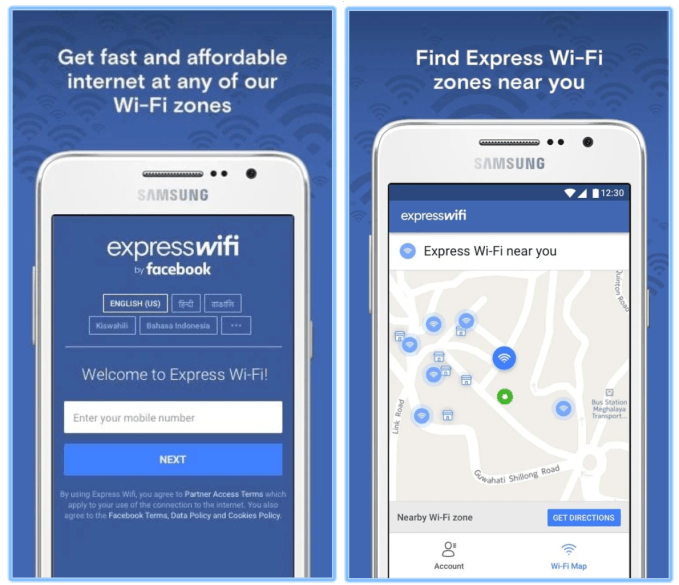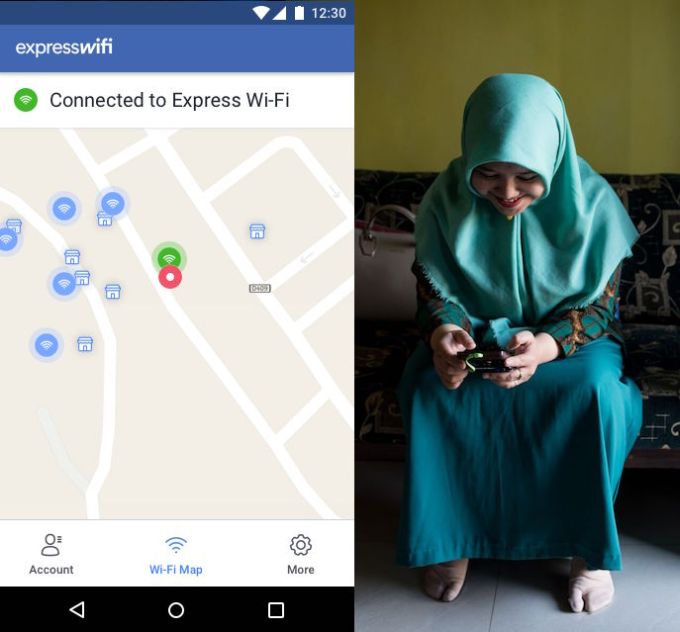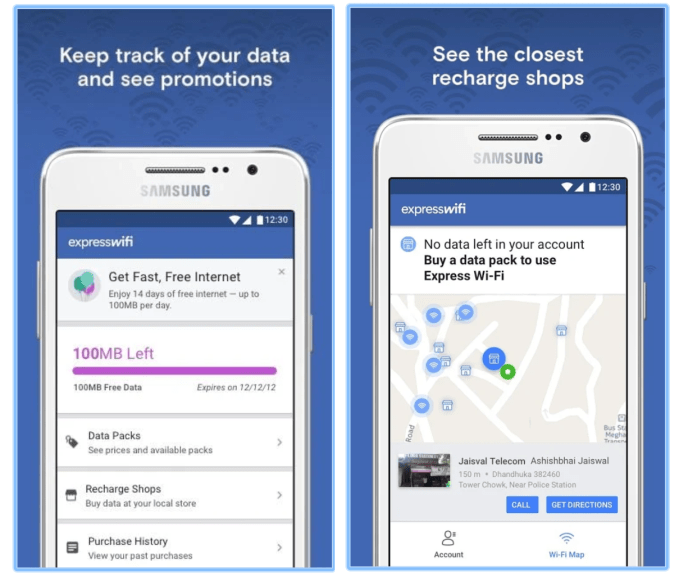Facebook wants you to pay for internet. This week TechCrunch was tipped off that Facebook had quietly launched an Express Wi-Fi Android app in the Google Play store that lets users buy data packs and find nearby hotspots as part of Facebook’s distributed Wi-Fi network. The company’s Express Wi-Fi program is live in five developing countries, that sees local business owners operating Wi-Fi hotspots where people can pay to access higher-speed bandwidth via local telecoms instead of paying steep prices for slow cellular data connections.
Previously, Express Wi-Fi users had to dig out a mobile website, or directly download an app from a telecom that required reconfiguring a phone’s settings. There wasn’t any way to look up where hotspots were located. The new Google Play app can be downloaded the normal way. It’s now live in Indonesia with bandwidth from telecom partner D-Net, and in Kenya through Surf. The app can also tell if a user’s Wi-Fi is turned on to help with set up, and they can file reports to Facebook about connectivity or retailer issues.

The launch signals Facebook expanding its pursuit of developing world audiences who first need Internet access before they can become lucrative Facebook users. Unlike its much-criticized zero-rating program called Free Basics (formerly Internet.org), Express Wi-Fi offers a full, unrestricted version of the web for a price instead of only low-bandwidth services approved by Facebook. This strategy could help it achieve its mission of getting more disconnected people in the developing world online without the net neutrality concerns. Making Express Wi-Fi an actual business might save Facebook from backlash about it masking a user growth driver inside a philanthropic initiative.

Facebook confirmed the launch to TechCrunch, with a spokesperson telling us “Facebook is releasing the Express Wi-Fi app in the Google Play store to give people another simple and secure way to access fast, affordable internet through their local Express Wi-Fi hotspots.” Sensor Tower first tipped us off to the app.
Weak or expensive connectivity is a huge barrier to Facebook deepening its popularity in the developing world at a time when its reaching saturation or even shrinking in some developed world nations. Facebook saw its first user loss ever in the U.S. and Canada region in Q4, with daily active users decreasing by 700,000 in part because of News Feed changes that reduced the presence of engagement-drawing viral videos.

Facebook needs user growth more than ever, and the developing world is where it can find it. That’s why it’s developing advanced technologies like the Aquila solar drone and satellites that can beam down connectivity. It’s also working with telecoms that use microwave towers to beam backhaul bandwidth to its Express Wi-Fi units.
Monetizing the international market has been a big focus for the company. It’s launched new region-specific and low-bandwidth ad units like click-to-missed-call and slideshows. It’s paid off. From 2012 to 2016, average revenue per user grew 4X in the Rest Of World region. And that revenue grows even faster when people can load Facebook quickly and cheaply thanks to strong Wi-Fi access. The more accessible Facebook makes this program, the more it could see those Internet users turn into social networkers.
from Social – TechCrunch http://ift.tt/2pdrdCC Facebook launches Express Wi-Fi app for its local-operated hotspots Josh Constine http://ift.tt/2FBtvWF
via IFTTT













0 comments
Post a Comment